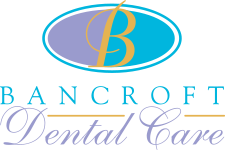
Have you ever noticed a cloud or mist coming from your mouth during dental treatment? Dentists call this aerosol, & while you generally don’t need to worry about it, it’s something dentists take very seriously. Here’s what you need to know about it.
What Is Aerosol?
In a general sense, aerosols are solid or liquid particles that are suspended in the air. These particles can be anything. For example, hairspray, spray paints & canned air all aerosolize the solutions for easy & direct application. Fog & mist are considered aerosols because they contain tiny water droplets. In dentistry, aerosol refers to particles that exit the mouth during dental treatment.
Dental aerosols result from a variety of procedures, from simple cleanings & fillings to dental surgery. They are especially prevalent with the use of high-speed dental tools. The particles that escape the mouth may comprise droplets of saliva or water, tooth dust, plaque or tartar, dental materials like filling composite or polish, or even viruses & bacteria.
Is Aerosol Bad for Us?
The majority of aerosol particles are not harmful, especially for healthy patients & dental professionals. The only time you really need to be mindful about dental aerosols is when they might contain viruses or bacteria that spread through airborne particles.
The best way to prevent the spread of contaminated particles is to isolate. Patients who have a cold, the flu or other respiratory viruses, for example, are always encouraged to stay home to prevent any potential spread. However, thanks to robust protocols, the chances are low that viruses will spread at your dentist’s office.
How Do Dentists Deal With It?
Dental professionals are accustomed to dealing with aerosols, & they have several tools at their disposal to do so, starting with gloves, masks & face shields to protect themselves. Most of these tools involve suction to gather the aerosols & prevent them from spreading. This suction can be done in the mouth, often paired with irrigation to collect particles before they become airborne, or outside the mouth.
Oral suctions systems outside the mouth can be very effective in catching aerosols. HEPA air filters, either in chairside machines or throughout the office, neutralize aerosols & help circulate & freshen the air in the office. Some offices even use UV light or fogging disinfection machines to clean the air as well as surfaces for an added layer of protection.
Your dentist may have a combination of these tools. Feel free to ask us about how we deal with aerosols & keep you safe!

